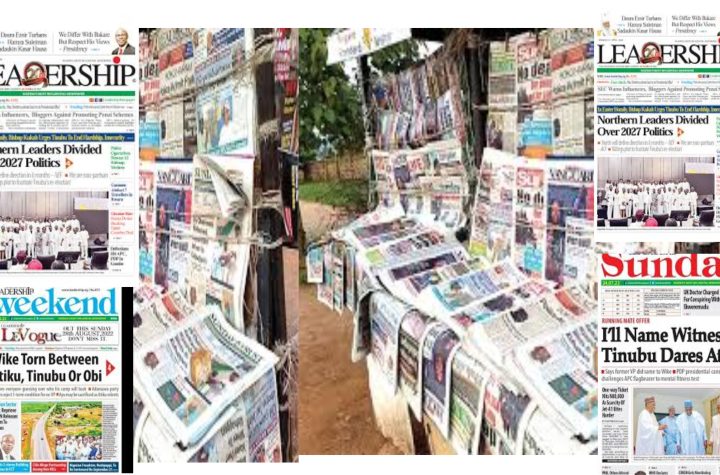
By allcitynews.ng
By Dr Muda Yusuf
The CPPE notes the recent introduction by government of the Expatriate Employment Levy [EEL] with dual purpose of promoting the localization of skills and economic growth.
The broad objectives of the scheme are laudable. But the CPPE has serious concerns about the unintended consequences of the policy.
Besides there are extant legislations and regulations with similar objectives:
There is the expatriate quota which empowers the Nigeria Immigration service to give approvals to companies for expatriate staff engagement only when there is no local capacity. Companies currently pay $2000 per expatriate annually.
This is an equivalent of about N3 million at current exchange rate. The new levy is $10,000 for staff and $15,000 for directors, which translates to N15 million and N22.5 million respectively.
There is the National Content Act for the oil industry which offers tremendous opportunities for indigenous investors to offer services to oil and gas companies. Indigenous capacity in the sector had grown remarkably since the enactment of the act.
There are presidential Executive Orders 3 and 5 which directed the MDAs to give first right of refusal to indigenous contractors, service providers for procurement purposes.
The point to the point to stress is that implementation of these legislations and regulations has been very weak thus affecting the outcomes. The problem is not lack of policies, but the institutional structure to deliver results.
IMPLICATIONS OF THE NEW POLICY FOR INVESTMENT
The time line for compliance is too short. The policy gave barely four weeks for companies to comply. For such a major policy shift, companies needed to be given minimum of six months. It is only fair and just to do so. This would be very disruptive for their businesses, plans and projections.
Some of the companies affected are major investors that have investment billions of dollars and have been in Nigeria for decades. This administration, being an investment friendly regime, should give companies more time.
The country needs more direct investors than portfolio investors at this time. But ironically, both foreign direct investors and domestic direct investors would be more negatively impacted than portfolio investors.
The economy needs more investors in the real economy – oil and gas, manufacturing, infrastructure, mining, ICT, Healthcare – all of which require varying skills and competencies. The truth is that major FDIs will typically come some critical staff to oversee their investments. It is imperative to give some consideration to this class of investors, given the scale of their investments which could be in billions of dollars.
The challenge of influx of foreigners, especially the unskilled ones are more pronounced in some sectors than others. Vulnerable sectors include construction, distributive trade, hospitality and logistics. The policy should be targeted at these more vulnerable sectors.
There are serious implications for diaspora Nigerians. The policy may trigger reciprocal actions from other countries and this may affect Nigerians in diaspora. There are currently over 17 million Nigerians in various countries around the world doing extremely well in the fields of Education, Medicine, Health, Sports, Media & Entertainment, Leadership & Politics, Finance, Science & ICT, Transportation, Tourism, Industry and Agribusiness. This is a pool of very valuable external sector assets for us as country.
We have the largest diaspora population in Africa. We also have the highest diaspora remittances on the continent, generally in excess of $20 billion. All of these could be at risk as a result of this policy.
If the reciprocity policy is activated in any of their host countries, the effect on our diaspora citizens will be very devastating.
Nigeria occupies a leadership position in Africa and very well respected. Our president is the current chairman of ECOWAS. This policy does not make an exception for our African brothers and neighbours. This is coming at a time when the African Continental Free Trade Area [AfCFTA] is gaining traction.
This policy could be a major setback for the continental economic integration vision. Besides many of our citizens are in many African countries. They may be victims of a reciprocal actions by other African countries.
The CPPE appeals to government to review the policy and undertake broader consultation to fine tune the policy to ensure that we do not hurt genuine investors in the country. It is also important to worry about the implications of possible diplomatic reciprocity, especially for our diaspora community.
Dr Muda Yusuf
CEO, CENTRE FOR THE PROMOTION OF PRIVATE ENTERPRISE {CPPE}
For ADVERT Placement;
For change of Name in Printed Newspaper
You can invite us for NEWS WORTHY
EVENT to be published in allcitynews.ng,
HAVE BREAKING STORY with pictorial evidence
OR wants to assist allcitynews.ng
by DONATIONS,
kindly contact us via ojezand@yahoo.com. Thank you.
Allcitynews.ng’s goal: To interface between policy makers & general public, most influential, informative and reliable issues-based online newspaper, working for unity, peace and development of the Country.
Disclaimer:
Comments expressed here do not in anyway reflect the opinions of allcitynews.ng or any employee thereof. It assumes no responsibility or liability for any errors or omissions in the comments.









More Stories
Oriental News Nigeria, sets for 4th Summit, as former Minister, Prof. Bart Nnaji expresses his willingness to Chair the 2025 Summit
BRT Mass Transist, Commuters lament against, condemn changed operational system by the management
FIRS helmsman calls for opening of tax offices nationwide at weekends to create smooth operations for tax payers durimg rush hours in month of June